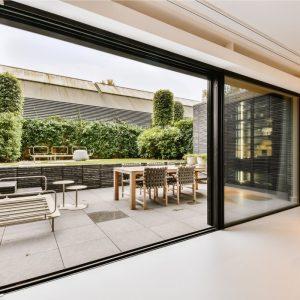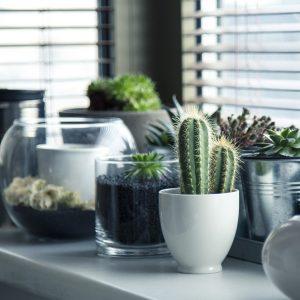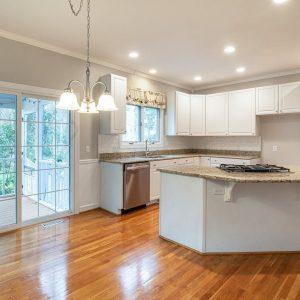Table of Contents
If you’ve ever dealt with limescale buildup on your faucets, stiff laundry, or soap that just won’t lather, you’ve encountered the effects of hard water. If you’re unsure about tackling hard water problems yourself, a professional plumber can help evaluate your home’s needs and recommend the best solution. Hard water is water with high levels of dissolved minerals, mainly calcium and magnesium.
While these minerals aren’t harmful to your health, they can wreak havoc on your plumbing, appliances, and overall home comfort. That’s where a water softener system comes into play. Let’s dive deep into what water softeners are, how they work, and how to choose and maintain one for your home.
What Is a Water Softener?
A water softener is a system designed to remove hardness-causing minerals from your water. It typically uses a process called ion exchange, where calcium and magnesium ions are replaced with sodium or potassium ions. Here’s a quick breakdown of how it works:
- Resin Tank: Hard water passes through a tank filled with resin beads charged with sodium ions. The beads attract and hold onto the calcium and magnesium ions, exchanging them for sodium.
- Brine Tank: When the resin beads become saturated with calcium and magnesium, the system regenerates by flushing the beads with a brine solution (saltwater).
- Drainage: The used brine and hardness minerals are flushed out, and the system is ready to soften water again.
This process leaves you with softened water, which is kinder to your plumbing, appliances, and skin.
How to Choose a Water Softener
When shopping for a whole-house water softener, there are a few key factors to consider:
1. Water Hardness Level
Start by testing your water’s hardness, measured in parts per million (ppm) or grains per gallon (gpg). Many water softeners list their capacity in grains, so knowing your water’s hardness helps you choose the right size.
- FAQs: How much does a water softener reduce ppm? A good water softener can reduce hardness from 200 ppm (12 gpg) to almost zero.
2. Household Size
How many people live in your home? The more water you use, the larger the softener you’ll need. As a rough guide:
- 1-2 people: 24,000 grains
- 3-4 people: 32,000 grains
- 5+ people: 40,000+ grains
- FAQs: What size water softener do I need? Choose based on your household size and water usage.
3. Type of Water Softener
There are several types of water softeners:
- Salt-Based Ion Exchange Systems: The most common and effective type. Requires regular salt refills.
- Salt-Free Systems: Use a different process (like conditioning) and are low-maintenance but less effective on very hard water.
- Dual-Tank Systems: Ideal for large households, providing continuous soft water.
- Portable Water Softeners: Great for RVs or small setups.
4. Additional Features
Look for systems with:
- Easy-to-use controls
- Efficient salt usage
- Regeneration settings (time-based or demand-based)
How to Install a Water Softener
Installing a water softener can be a DIY project if you’re handy, but hiring a professional plumber ensures proper setup. Here’s the general process:
- Choose a Location: Install near your main water line, preferably before water enters your water heater.
- Shut Off Water: Turn off your home’s water supply.
- Connect the Bypass Valve: Most systems come with a bypass valve to allow water to bypass the softener during maintenance.
- Plumb the System: Connect the water softener to your home’s plumbing. Use flexible tubing for easier installation.
- Install the Drain Line: Attach a drain hose to flush the system during regeneration.
- Power Up: Plug the unit into an electrical outlet and program settings as needed.
Professional installation can cost $200 to $500, depending on your system and plumbing setup.
How to Maintain a Water Softener
Once your water softener system is installed, it’s important to maintain it for optimal performance. Here’s how:
1. Check the Salt Level
The brine tank needs salt to regenerate the resin beads. Check the salt level monthly and keep it about half full.
- FAQs: How much salt to add to the empty water softener? Add enough to fill the brine tank halfway or according to the manufacturer’s guidelines.
2. Use High-Quality Salt
Choose water softener salt designed for your system. Options include:
- Rock Salt (affordable but may leave residue)
- Solar Salt (purified and dissolves easily)
- Evaporated Salt (highest purity)
3. Clean the Brine Tank
Every 6-12 months, empty and clean the brine tank to remove sludge or residue.
4. Replace the Resin Beads (When Needed)
Resin beads typically last 10-15 years, but heavy use or highly chlorinated water may shorten their lifespan.
5. Inspect and Service Annually
Check for leaks, clean the valve, and ensure the system regenerates properly.
FAQs About Water Softeners
How Much Is a Water Softener?
Water softeners range from $500 to $3,000, depending on size, type, and features. Installation costs are extra.
Can You Drink Softened Water?
Yes, but softened water contains added sodium. If you’re on a low-sodium diet, consider installing a reverse osmosis filter for drinking water.
How Long Do Water Softeners Last?
With proper maintenance, a water softener can last 10-20 years. Regular servicing extends its lifespan.
Why Invest in a Whole-House Water Softener?
A whole-house water softener protects your plumbing, extends the life of appliances like water heaters and washing machines, and improves the feel of your water. Here are some key benefits:
- Reduces Limescale Buildup: Prevents clogging and damage to pipes and fixtures.
- Saves Money: Reduces energy costs and appliance repairs.
- Improves Water Quality: Makes water feel softer and soap lather better.
- Better Skin and Hair: Soft water is gentler on your skin and hair.
- Preserves Fabrics: Keeps clothes softer and brighter.
Final Thoughts
A water softener system is a long-term investment in your home’s comfort and efficiency. Whether you’re tired of scrubbing limescale or just want your appliances to last longer, installing a whole-house water softener can make a big difference. If you’re unsure about the best system for your needs, consult with a professional plumber to ensure you get the perfect fit for your home. With the right water softener, you’ll enjoy cleaner, softer water for years to come.



